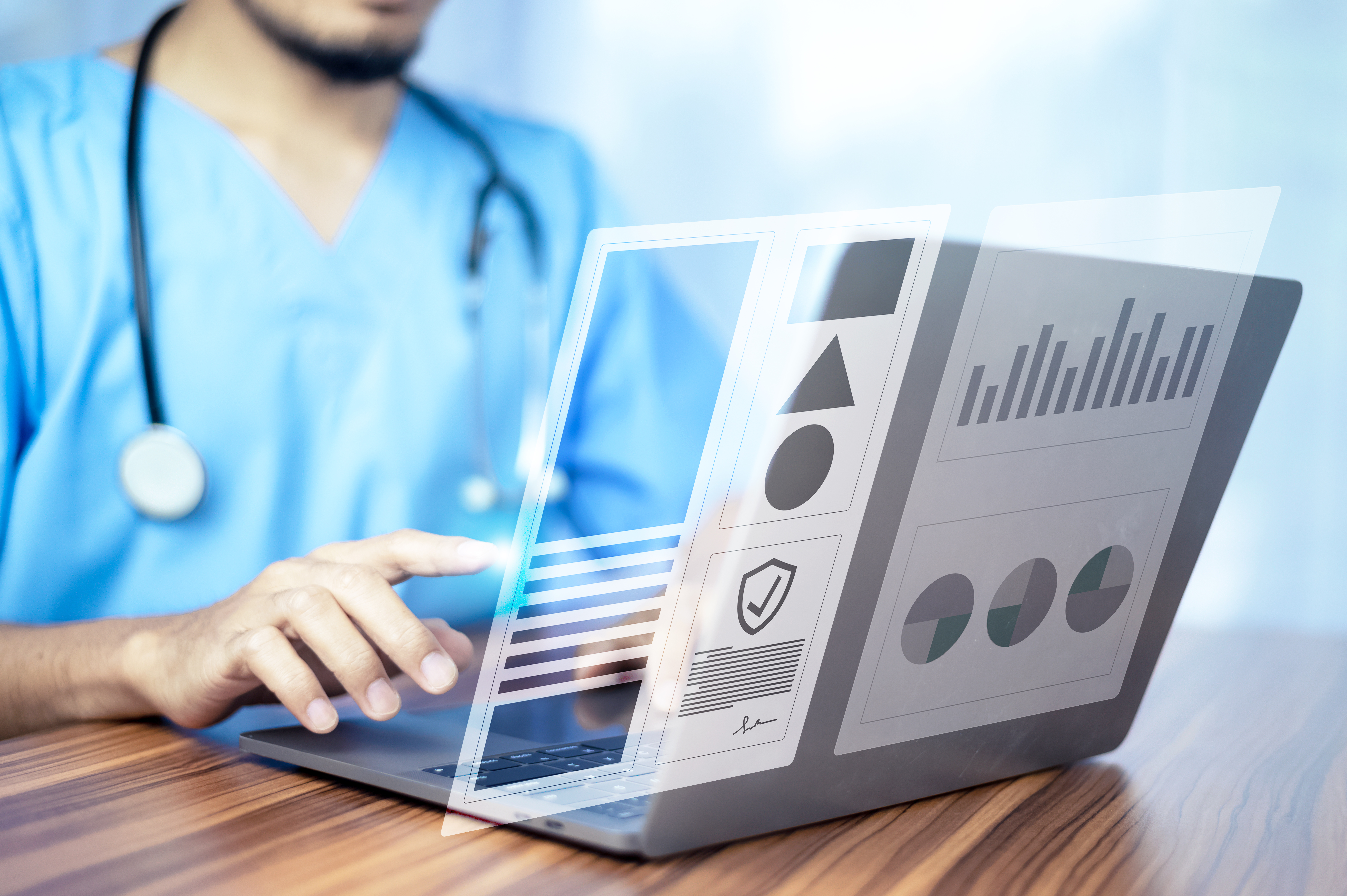How Electronic Patient-Reported Outcome (ePRO) Systems revolutionize Clinical Trials: Features and Benefits
Technological advancements continue to reshape traditional practices, leading to more efficient and patient-centric approaches. One such innovation making waves in the realm of clinical trials is the ePRO system. This transformative technology holds the promise of enhancing data collection, improving patient engagement, and ultimately contributing to more successful clinical trials.
What is the ePRO system?
The electronic Patient-Reported Outcome (ePRO) is developed to assist clinical researchers in collecting data on patient experiences so that they can measure the effectiveness of their study treatments over a period of time.
The ePRO will deliver digital questionnaires to patients prior to treatment, during the clinical trial, and after treatment. The patients need to fill out these questionnaires which gather data on overall well-being, physical health, mental health, satisfaction with the care being received, side effects, or any other aspects.
An overview of how ePRO systems function
- System Setup: First, healthcare providers or research organizations implement the ePRO system by selecting a suitable software platform or developing a custom solution. You need to configure the system, create user accounts, and define the data collection parameters according to the specific requirements of the clinical trials.
- Patient Enrollment: Patients who are invited to participate in the ePRO program will be provided with the necessary information, including login credentials and instructions on how to use the system, to access the system. Access can be granted via various means, such as email invitations, mobile app downloads, or web portals. Some healthcare providers even offer training for patients so that they can thoroughly understand how to use the system effectively.
- Data Entry: After that, patients log into the ePRO system using their credentials and securely enter their health-related information. The system guides them through the data entry process, presenting questions, prompts, or surveys in a user-friendly manner. They can report symptoms, side effects, treatment adherence, quality of life measures, or any other data relevant to their healthcare.

- Real-time Data Capture: As patients enter their data, it is instantly transmitted to the ePRO system's server or cloud-based platform. The system ensures that the data is securely stored and encrypted for privacy and security purposes.
- Data Management: The ePRO system then organizes and manages the collected data in a secure database. It may include features such as data validation checks, automatic scoring algorithms, and data cleaning procedures to ensure accuracy and reliability.
- Data Analysis and Reporting: Healthcare providers or researchers can access the aggregated data through the ePRO system's reporting tools. The system can generate customizable reports, visualizations, and analytics to provide healthcare professionals with valuable insights. This analysis can help you identify trends, monitor treatment effectiveness, and make impactful clinical decisions.
- Communication and Feedback: ePRO systems often support two-way communication between patients and healthcare providers. Providers can review patient-reported data, communicate with patients, and make appropriate interventions if necessary. Besides, patients can also give feedback for the treatment process or the ePRO systems apart from reporting their health conditions. This enhances patient engagement and facilitates personalized care.
- Data Integration: Depending on the system's capabilities, ePRO data can be integrated into electronic health records (EHRs) or other healthcare systems to provide a comprehensive view of the patient's health. This integration allows healthcare providers to have a complete picture of the patient's health status.
Useful Features of ePRO Significantly Improving the Overall Efficiency of Clinical Trials
- Mobile Accessibility: ePRO systems not only can be accessed through web-based platforms but also through various devices, including smartphones and tablets. This mobile compatibility allows patients to conveniently report their outcomes from anywhere, anytime, hence, promoting flexibility and real-time data collection for both patients and professionals..
- Integration with Wearable Devices: ePRO systems can be integrated with multiple wearable devices such as smartwatches, fitness trackers, and biosensors, helping healthcare professionals be able to continuously monitor relevant health parameters. This feature provides researchers with objective, real-time data and enhances the overall depth of information collected during a clinical trial.
![]()
- Alerts and Notifications: Depending on your requirements and the ability of vendors, automated alerts and notifications can be programmed to remind patients to complete assessments, take medications, or attend study visits. This feature helps maintain a high level of patient compliance and adherence to the study protocol.
- Adaptive Questioning: By incorporating adaptive questioning based on patient responses, some outstanding ePRO systems can even dynamically adjust the subsequent questions, tailoring the survey to the individual's previous answers and providing a more personalized experience.
- Audit Trails: ePRO systems equipped with audit trail functionalities can help you track and record any changes made to the data so that you can prevent unauthorized access or data breaches. This is extremely crucial for maintaining data integrity and meeting regulatory requirements in clinical research.
How ePRO systems transform Clinical Trials?
- Real-time Data Collection: ePRO systems enable healthcare professionals to access patient-reported data in real-time, allowing for prompt identification of any concerning changes in a patient's condition. This timely insight helps providers to intervene early, adjust treatment plans, or initiate necessary interventions, ultimately contributing to improved patient outcomes and satisfaction.
- Enhanced Data Accuracy: The traditional method of collecting patient-reported outcomes often involves paper-based questionnaires or face-to-face interviews. However, these methods come with inherent limitations, including data transcription errors, delays in data entry, and potential bias. The ePRO system addresses these challenges by digitizing the entire process, allowing patients to directly input their responses into electronic devices such as smartphones, tablets, or computers.
- Better Patient Engagement: ePRO systems empower patients to actively participate in their own treatment process by providing them with a convenient and user-friendly method to report their health-related information. Through secure online portals or mobile applications, patients can easily input their data at their convenience, promoting a sense of ownership and collaboration in the management of their health. As a result, this increased engagement can lead to improved treatment adherence and better communication between patients and healthcare providers.
- Flexible and Customized Data Collection: ePRO systems can be tailored to specific study requirements, allowing for the incorporation of disease-specific questionnaires and adaptive questioning based on individual responses, creating a comprehensive and customizable approach to gathering patient-reported outcomes. Whether it's assessing symptoms, quality of life, medication adherence, or treatment satisfaction, these systems can accommodate diverse data elements customized to specific patient populations and clinical needs. However, to ensure that the ePRO systems are designed to meet your clinical research’s exact requirements, you need to find a trustworthy vendor who has diverse experience in working with ePRO systems of different clinics, like Ominext.
Conclusion
The adoption of Electronic Patient-Reported Outcome systems represents a paradigm shift in the way clinical trials are conducted. By harnessing the power of technology to collect real-time, accurate, and patient-centric data, ePRO systems contribute to the overall success of clinical research endeavors. As the healthcare industry continues to embrace innovation, ePRO systems are poised to play a pivotal role in shaping the future of clinical trials and ultimately improving patient outcomes.





